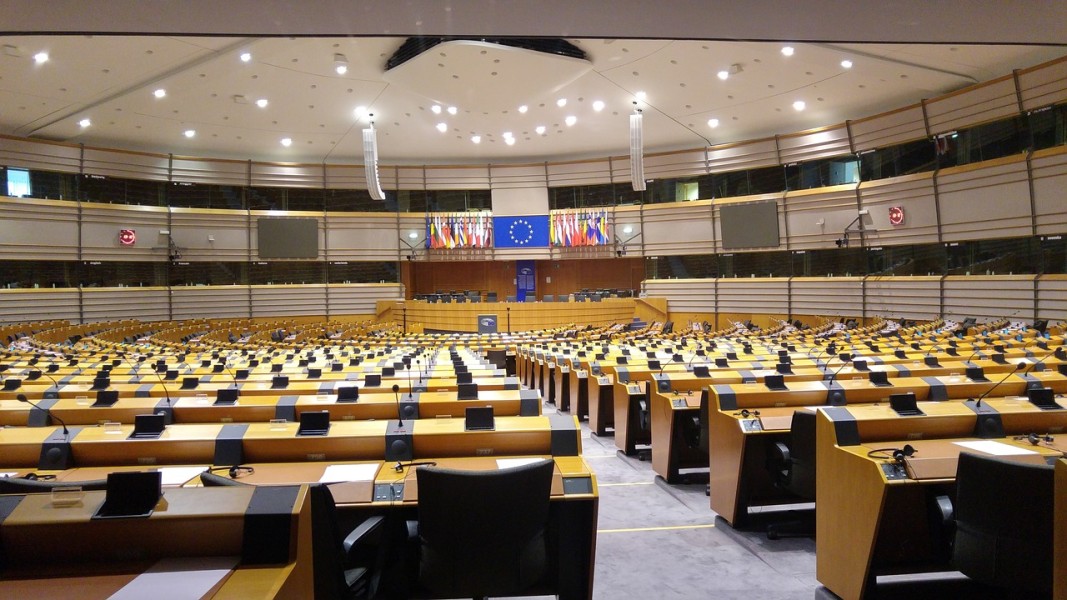A few months before the European elections, which will be held throughout the EU in the period June 6 to 9, and in the backdrop of the uncertain political situation in Bulgaria, Radan Kanev, MEP from the EPP group, elected from the DB list, made a forecast about the composition and policy of the new European Parliament. According to him, if early national parliamentary elections were held together with the elections for the European Parliament, this would lead to blurring of the important topic of what lies ahead in Europe for years to come.

"I am a fierce opponent of ‘two-in-one’ elections, because this would mean that the European debate would not take place in Bulgaria at all, even in its most polluted, propaganda-like form," Kanev says. According to him, holding of new parliamentary elections would hardly lead to a different result, but the important figures in Bulgarian politics will be busy with assembling the next majority and government and not with the important debate for the next five years as the formation of the new European institutions starts after the European elections. Radan Kanev defines this process as "a very delicate exchange of positions for policies" which will predetermine the political priorities for a five-year period. "We, who have always been criminally passive in these relations, will be completely absent this time," the MEP from the largest group in the EP says in an interview with Radio Bulgaria.

Despite the belated debate in Bulgaria about Europe, it seems that in the past two years the society has started to realize the importance of European legislation.
"We started to talk more about the balance between European and national policies, to understand that the European Parliament is not just a place where resolutions are voted, but where 2/3 of the legislation in our daily lives is prepared. All this is a topic of the European elections."
According to the Bulgarian MEP, expectations for the rise of Euroscepticism in the next European Parliament are greatly exaggerated.
"There is no news as to how the next parliament will be positioned both in terms of the unity of the European Union and in terms of our support for Ukraine,” Radan Kanev says. According to him, however, change can be expected in the field of economic and environmental policy. “The fact that the opponents of the common European policy in defense of Ukraine are too few among the so-called far-right parties is often overlooked. The most far-right group 'Identity and Democracy' is not united at all on the topic."

The current European Parliament works on the principle of a centrist majority between liberals, socialists and the EPP. The few issues on which no consensus is found indicate the existence of a stable reserve leftist majority.
"Most likely, in the next parliament, the reserve majority will be right-wing. But it will remain in reserve because nobody works with ‘Identity and Democracy’ and that will not change," Kanev says.
Publication in English: Al. Markov
Photos: Ani Petrova, Pixabay, BGNES
From fear and doubts to joy and support – Bulgarians react differently to the upcoming introduction of the euro on January 1, 2026. For some, it is a logical step towards Bulgaria’s integration into the EU with promises of stability..
Teodora Byalkova joined the Bulgarian Sunday school "Sts. Cyril and Methodius" in Athens in the 2022/23 school year. At that time, she also organized the dance formation "Ludi-Mladi" for current and graduated students. Since then, the..
The village of Novo Selo is located on the road between Veliko Tarnovo and Sevlievo. Here archaeologists have found tools used by people during the Chalcolithic, which testify to an active economic life in the area. There is also..
Timișoara, a large multicultural city in western Romania, is the center of the historical community of the Banat Bulgarians . The members of this..
In Gabrovo – a city in the geographical center of Bulgaria, once described as the Bulgarian Manchester, but today facing demographic..
The project “The Charisma of Bulgarians” is, in essence, a bridge between different worlds . With it, Dimitrinka Yordanova Komanduci - psychologist,..

+359 2 9336 661
